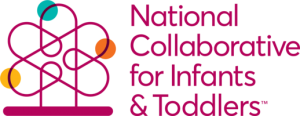Jim Sharp
2019 PA Community on Transition Conference
The Office of Children, Youth and Families (OCYF) would like to announce that the Pennsylvania Community on Transition State Leadership Team (SLT) has announced the date for its 2019 PA Community on Transition Conference. The conference will be held at the Penn Stater Conference Center and Hotel Wednesday, July 17 & Thursday, July 18, 2019 and brings together a diverse community of stakeholders to share information, explore resources, and gain knowledge regarding successful secondary transition practices. The conference will offer breakout sessions and activities designed for youth and young adults, networking opportunities, hands-on assistive technology exhibits, vendor displays, and resource tables. Topics covered include Transition Planning, Secondary Education, Youth and Family Engagement, Employment, and Social and Emotional Health.
Youth and Family Scholarships: A limited number of scholarships are available for family members or caregivers of a transition-aged youth or young adult with a disability, and high school youth between the ages of 16–21 accompanied by an adult (family member/caregiver). Families are encouraged to apply by completing the scholarship application online on or before June 26, 2019. The scholarship will cover the cost of a double occupancy hotel room and conference registration fee. Meals and mileage are on your own. You will be informed of your acceptance by July 1, 2019. For additional information about youth/young adult family scholarships, please contact Paula Quinn. The scholarship form can be found by visiting the PaTTAN website. If a foster or adoptive youth applies for a scholarship, please email the youth’s name and date of birth.
Contact RCPA Children’s Division Director Jim Sharp with any other questions.
Lessons from PN–3 Pritzker-Funded State Grantees
If I Knew Then, What I Know Now: Lessons from the PN–3 Pritzker-Funded State Grantees
Leaders from the Pritzker planning grantee states are invited to hear from state leaders who were funded earlier to create prenatal to age three policy agendas and action plans. They’ll address issues such as coalition planning and structure, policy agendas, data, and stakeholders engagement. The forum will be offered on Thursday, June 6, at 2:00 pm. Register here to participate.
Date: Thu, Jun 6, 2019
Time: 2:00 PM EDT
Duration: 1 hour 30 minutes
Host(s): NCIT Hub
Prenatal to 3: Webinar Offerings This Summer
The Center for the Study of Social Policy is hosting a series of free summer webinars for the Prenatal (PN) to 3 community. Feel free to register or pass it along to others that might have an interest.
Webinar: Effective Strategies for Engaging the Pediatric Community, Tuesday, June 4, 2:00 pm – 3:00 pm ET by Jill Sells, MD, FAAP, CSSP Consultant. This presentation will help early childhood community leaders more effectively engage the pediatric community in early childhood partnerships that help families connect to prenatal-to-three supports. Participants will learn about common barriers that stand in the way of partnership as well as helpful strategies to bridge early childhood and health. Register here.
Webinar: Early Relational Health: Community Level Strategies for Supporting the Psychosocial Health of Infants, Toddlers, and the Caregivers, Wednesday, June 12, 12:00 pm – 1:00 pm ET by David Willis, MD, CSSP Senior Fellow. This presentation will define the concept of “early relational health” and help participants examine new ways to support the functional, emotional, behavioral, and psychosocial health of infants and toddlers and their primary caregivers at the community level. Register here.
Webinar: Reaching Isolated Families and Communities, Friday, July 12, 1:00 pm – 2:00 pm ET by Rosemarie Allen, PhD, Institute for Racial Equity and Excellence. Participants will learn about challenges faced by socially isolated or “hard-to-reach” families and opportunities to help more families in need of access to prenatal-to-three services. Participants will also learn about strategies to mitigate implicit bias and implement culturally responsive practices. Register here.
Webinar: Building Strong Local Alliances to Support Your PN–3 Agenda, Wednesday, August 21, 1:00 pm – 2:00 pm ET by George Askew, MD, FAAP, Deputy Chief Administrative Officer for Health, Human Services, and Education of Prince George’s County, MD and Krystal Reyes, Chief Resilience Officer, City of Tulsa, OK. This presentation provides community engagement strategies for sharing power and building allies to help advance your prenatal-to-three strategies and agenda. Register here.
Thanks for all you’re doing on behalf of babies!
Gerry Cobb, Pritzker Children’s Initiative
Congressional Briefing Highlights Needs of Transition Age Youth with I/DD and BH Conditions
On May 15, Representatives Grace Napolitano (D-CA) and John Katko (R-NY), co-chairs of the Congressional Mental Health Caucus, hosted a very important briefing in Washington, DC as part of Mental Health Awareness Month. This briefing addressed the decarceration of transition age youth with intellectual/developmental disabilities (I/DD) and mental disorders. Key presentations outlined the issue, its impact (including impact upon families), and needed solutions.
Rep. Napolitano opened with welcoming remarks, whereby she decried the plight of many children and young adults with disabilities and emphasized the need to move toward community care. Additional information about the briefing can be found here.
Join a Citizen Review Panel
The Department of Human Services (DHS) is partnering with the University of Pittsburgh Child Welfare Resource Center to recruit for the Pennsylvania Citizen Review Panels (CRPs). The CRPs are groups of volunteer citizens who examine policies, procedures, and practices of state and local agencies and make recommendations for improvement to DHS. CRPs partner with state and local children and youth agencies, relying on maintaining respectful and positive relationships with these agencies to complete their work. To learn more about Pennsylvania’s CRPs, including their mission, vision, function, and members, visit this website. Please also see the website for our recruitment video.
They are currently working to recruit additional members to all three regional panels in the Northeast, South Central, and Southwest. Brochures for each panel as well as a general CRP flyer are below. Each brochure lists the counties within each region. Information on regions can also be found on the CRP website. The recruitment period will remain open until June 15.
- Citizen Review Panels: Southwest Region
- Citizen Review Panels: South Central Region
- Citizen Review Panels: Northeast Region
- CRP Flyer
It is requested that you forward this information on to your contacts and/or provide the names and contact information of individuals you feel would be a good fit for the panels and are located within one of the three regions. An online application can be accessed through the “Join” page on the CRP website. Referral information can be sent to the CAPTA Program Development Specialist, Kari Coccagna, via email or at 717-795-9048.
Pennsylvania’s Annual Child Protective Services Report Released
On May 1, the Pennsylvania Department of Human Services (DHS) released the 2018 Child Protective Services Annual Report. While the report indicated a decrease in the number of report investigations, the slight increase in statewide substantiated reports of child abuse underscores the impact of changes to Pennsylvania’s Child Protective Services Law as outlined in the executive summary below.
EXECUTIVE SUMMARY
- Statewide substantiated reports of child abuse increased from 1.8 per thousand children in 2017 to 1.9 per thousand children in 2018.
- Sexual abuse remains the leading category of abuse, followed by physical abuse.
- Parents continue to be the persons most responsible for abuse of their children.
- Amendments to the Child Protective Services Law, effective in December 2014, continue to drive increases in substantiated reports of child abuse. These amendments increased the number of mandated reporters of child abuse and added additional persons who could be identified as perpetrators of child abuse.
RCPA and its members continue our active partnership in statewide initiatives in keeping Pennsylvania’s children safe. Contact Jim Sharp, RCPA Children’s Division Director, with questions.
Materials from February 12 Children’s Division Meeting
JDCAP Two-Day ALICE Active Shooter Training Sept 3–4
Registration, directions, and required documentation are below
Juvenile Detention Centers and Alternative Programs (JDCAP) and the ALICE Training Institute have teamed up to bring ALICE Instructor Training to Consumer Service Professionals and County Agencies at the County Commissioners Association of PA (CCAP) office on September 3-4, 2019. This two-day instructor course is designed to teach proactive survival strategies for violent intruder or active shooter incidents. The goal of the ALICE program is to provide individuals with survival-enhancing options for those critical moments in the gap between when a violent situation begins and when law enforcement arrives on scene.
ALICE stands for Alert, Lockdown, Inform, Counter, and Evacuate and is a useful strategy for everyone: law enforcement, schools, universities, hospitals, businesses, and places of worship. Completing the ALICE Instructor Training course provides individuals with certification in ALICE Training and allows them the opportunity to bring ALICE strategies back to their places of work. Additionally, registrants will gain access to exclusive ALICE resources. ALICE is in line with recommendations from the US Department of Education, the Department of Homeland Security (DHS), and the Federal Emergency Management Agency (FEMA).
About ALICE Training Institute
The ALICE Training Institute is changing how schools, universities, and businesses respond to armed intruders. ALICE (Alert, Lockdown, Inform, Counter, and Evacuate), developed after Columbine, teaches strategies to survive a life-threatening event. Supported by educators and law enforcement across the country, ALICE is quickly becoming the new standard of care.
Early Intervention Stakeholders Opportunity for Input
You are invited to participate in the development of a new Early Intervention Family Survey. Early Intervention (EI) administrative staff, service coordinators, therapists, teachers, and families are being invited to participate in one of the sessions. Please share this information widely with fellow EI stakeholders, including family members. Also, feel free to forward this email and/or this flyer.
Below, please find a list of one-hour sessions through the online meeting platform Zoom. To access Zoom, you will need an internet connected device (desktop computer, laptop, smart phone, tablet). You can connect to audio by phone or through your internet connected device.
Please join ONE of the sessions:
March 11:
9:00 am – 10:00 am
5:00 pm – 6:00 pm
6:30 pm – 7:30 pm
March 13:
10:00 am –11:00 am
12:00 pm –1:00 pm
4:00 pm – 5:00 pm
March 14:
12:00 pm – 1:00 pm
No registration necessary; use the link below to join on the date/time (from those listed above) that works for you.
To see the discussion materials, join from your computer by using this link: https://paiu.zoom.us/j/6381021552
To hear the discussion, join using your computer or by calling the number below:
+1 877 369 0926 (US Toll Free)
+1 877 853 5247 (US Toll Free)
Meeting ID: 638 102 1552
Questions, please contact:
Sarah Holland
Special Assistant for Family Engagement
Departments of Education and Human Services
Office of Child Development and Early Learning
717-787-8691

















